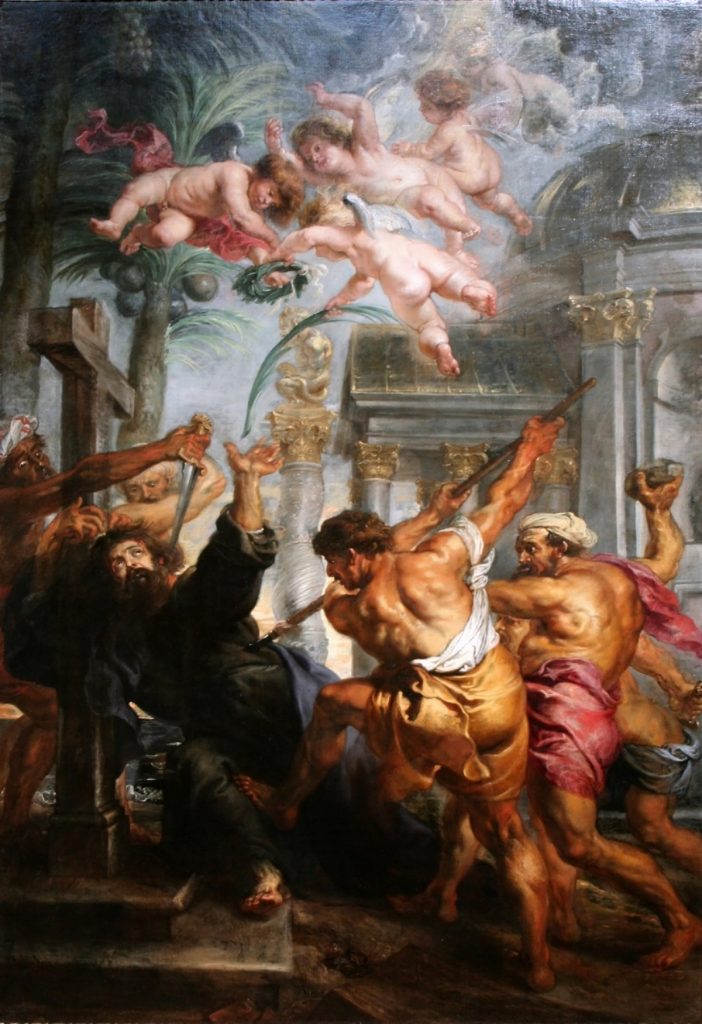
Today being the Feast of Saint Thomas, Apostle, I got to wondering about it being celebrated on July 3rd. I was thinking about this as is it is also the birthday of my late wife Socorro and her role for me in my moving from unbelief to belief.
From what I could gleam, the celebration on July 3rd is based on the transfer of St. Thomas’s relics from Mylapore, India to Edessa (in modern-day Urfa, Turkey) around the 3rd or 4th century. In the Roman Rite of the Church his feast day was on December 21st, but was moved as part of the calendar reform in 1969 to match the Syriac tradition.
The label “Doubting Thomas” sometimes comes up as being unfair to tag him with this when there was a lot of disbelief among the apostles, both while Jesus was alive and in the aftermath of his death and resurrection. As a specific label or idiom, it is fairly modern and arose likely in the late 17th century in early modern English.
The Gospels give us little information regarding Thomas. The Synoptic Gospels only list his name. It is only in the Gospel of St. John is where we get more information on St. Thomas.
AUGUSTINE. (Tr. cxxi.) The nails had pierced His hands, the lance had pierced His side. For the healing of doubting hearts, the marks of the wounds were still preserved.
St. Augustine, Bishop of Hippo, A.D. 396. [1]
GREGORY. (Hom. xxvi.) It was not an accident that that particular disciple was not present. The Divine mercy ordained that a doubting disciple should, by feeling in his Master the wounds of the flesh, heal in us the wounds of unbelief. The unbelief of Thomas is more profitable to our faith, than the belief of the other disciples; for, the touch by which he is brought to believe, confirming our minds in belief, beyond all question.
St Gregory I. Pope, A.D. 590.[2]
I can so easily identify with Thomas’ apparent empiricism here, yet there seems to me to be much more here than doubt. There was so much faith underlying that doubt that it did not seem to take much to make the movement from disbelief into the wonderful Dominus meus, et Deus meus, “My Lord and my God!” A phrase that has echoed through time during the consecrations of the Eucharistic elements and recited by so many in their own affirmative joy in the presence of our Eucharistic Lord at Mass.
One other aspect regarding the mentions of St. Thomas in the Gospel of John is for me something I also want to reflect on more. There is an intellectual honesty regarding Thomas in that it must have been quite difficult for him to say what he did in the presence of Jesus and the other apostles. Jesus’ appearance was not something to just mull over and sort out later on when he was by himself. It would have been easier to just go along with the others in their acceptance, even if he might have felt that this was too good to be true. Forthrightly stating your doubts allows others to address them.
“But let us go to him.” So Thomas, called the Twin, said to his fellow disciples, “Let us also go, that we may die with him.” (Jn 11:15–16 ESV-CE)
St. Thomas did not withhold his assessment of the danger they were in by going to Bethany after they got the news of the death of Lazarus.
Thomas said to him, “Lord, we do not know where you are going. How can we know the way?” (Jn 14:5, ESV-CE)
It is stunning how much St. Thomas’s honest reactions elicit from Jesus. Here, Jesus replies to him, “I am the way, and the truth, and the life …”
Thinking also about St. John Henry Newman’s “Ten thousand difficulties do not make one doubt,” I can understand why “Ten thousand difficulties Thomas”, never caught on. Still, I wish more people understood that honest questions and difficulties regarding the faith are not an intellectual rejection of faith.

While the details of St. Thomas’ martyrdom are historically uncertain, there is a certain irony in Thomas saying “and place my hand into his side” to be speared to death.
- St Thomas Aquinas, pp. 606, Catena Aurea: Commentary on the Four Gospels, Collected out of the Works of the Fathers: St. John. ↩
- St Thomas Aquinas, pp. 608–609, Catena Aurea: Commentary on the Four Gospels, Collected out of the Works of the Fathers: St. John. ↩

1 comment
I read your conversion story on another website and have been reading some of your posts. You’re a skilled writer and I come from a similar atheistic background, loving classic rock and Ayn Rand. I appreciate your writings.